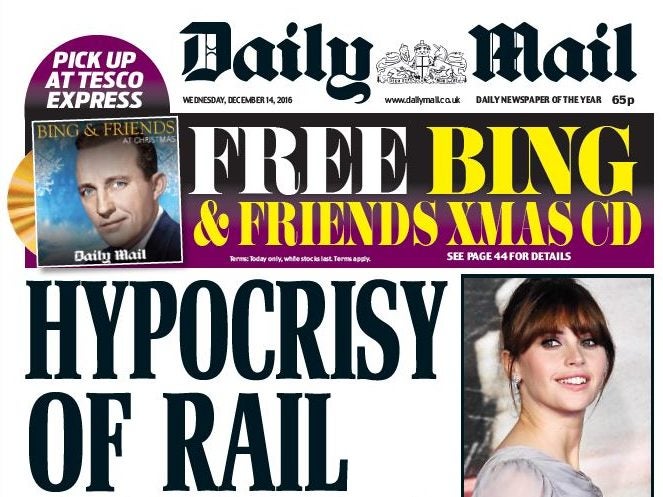
Journalists on the Mail titles have been urged to “help defend” against the “threat to freedom of expression” posed by the implementation of the section 40 cost provisions law.
In an email, seen by Press Gazette, editor emeritus Peter Wright tells staff they can do their bit by contributing to a Government consultation seeking views on the issue, set to close on 10 January.
The Government has hesitated in implementing section 40 of the Crime and Courts Act 2013, despite the law having already been enacted by Parliament.
Former Mail on Sunday editor Wright also warns that press reform campaign group Hacked Off are “lobbying very hard” in favour of section 40 and the start of part two of the Leveson Inquiry.
He said: “Section 40 is the punitive measure intended to force newspapers and their websites into state-approved regulation under the government’s Royal Charter.
“Not a single mainstream newspaper or website has agreed to be regulated under the Royal Charter – believing it to be incompatible with freedom of expression, and one step away from state control.
“Under section 40, newspapers and websites which are not members of a Royal Charter approved regulator – which means Max Mosley’s Impress – can be forced to pay the other side’s costs in libel and privacy cases, even if the newspaper or website wins its case [Wright’s emphasis].”
“It goes without saying that any legal regime under which claimants can win damages at virtually no risk to themselves is wide open to abuse, both from compensation-seekers and their ambulance-chasing lawyers, and from unscrupulous individuals using Robert Maxwell-style gagging law suits to chill investigations by journalists. The cost of section 40 will be crippling.
“Leveson Two will look into relations between journalists and the police and politicians.
“We have already seen 67 journalists arrested and/or charged in relation to phone-hacking and payments to public officials, of whom just 10 were eventually convicted, at a cost to the tax-payer of £41 million.
“It is difficult to see what would be achieved by a further raking over of old coals.”
The email from Wright, who is also member of the Independent Press Standards Organisation’s (IPSO) complaints committee, gives staff step-by-step instructions on how to fill out the consultation, but is clear they can choose whether or not to do so.
He said: “Freedom of expression is the foundation of everything we do as journalists. I am sure you will have your own views on the Government’s consultation, and wouldn’t for one minute presume to impose on them.
“However, if you believe section 40 is a threat to freedom of expression you can help defend it by adding your voice to the consultation. It’s not difficult: just follow the steps below to tick the boxes in the online form. Don’t wait – the consultation closes on January 10.”
The email to staff in full:
JOURNALISM UNDER THREAT
Dear Colleague,
Forgive me for troubling you but I wanted to make you aware, if you are not already, of a very serious threat to our journalism – and what you can do to help defend it.
You have probably read that the government is conducting a consultation on whether or not to implement section 40 of the Crime and Courts Act, and hold Part Two of the Leveson Inquiry.
Section 40 is the punitive measure intended to force newspapers and their websites into state-approved regulation under the government’s Royal Charter.
Not a single mainstream newspaper or website has agreed to be regulated under the Royal Charter – believing it to be incompatible with freedom of expression, and one step away from state control.
Under section 40, newspapers and websites which are not members of a Royal Charter approved regulator – which means Max Mosley’s Impress – can be forced to pay the other side’s costs in libel and privacy cases, even if the newspaper or website wins its case.
The alternative – joining impress or encouraging IPSO to seek Royal Charter approval – would not only mean submitting to state supervision, but being subject to an arbitration scheme which is free for complainants (apart from a small administrative fee), and has the potential to turn routine complaints into claims for compensation – with all the inevitable legal costs. Not only that, the newspaper or website has to pay the arbitrator’s fees in every case – win or lose.
It goes without saying that any legal regime under which claimants can win damages at virtually no risk to themselves is wide open to abuse, both from compensation-seekers and their ambulance-chasing lawyers, and from unscrupulous individuals using Robert Maxwell-style gagging law suits to chill investigations by journalists. The cost of section 40 will be crippling.
Leveson Two will look into relations between journalists and the police and politicians. We have already seen 67 journalists arrested and/or charged in relation to phone-hacking and payments to public officials, of whom just 10 were eventually convicted, at a cost to the tax-payer of £41 million. It is difficult to see what would be achieved by a further raking over of old coals.
It won’t surprise you that Hacked Off are lobbying very hard for implementation of section 40 and encouraging their supporters to take part in the consultation.
Freedom of expression is the foundation of everything we do as journalists. I am sure you will have your own views on the Government’s consultation, and wouldn’t for one minute presume to impose on them.
However, if you believe section 40 is a threat to freedom of expression you can help defend it by adding your voice to the consultation. It’s not difficult: just follow the steps below to tick the boxes in the online form. Don’t wait – the consultation closes on January 10.
Peter Wright
Editor Emeritus
Email pged@pressgazette.co.uk to point out mistakes, provide story tips or send in a letter for publication on our "Letters Page" blog

